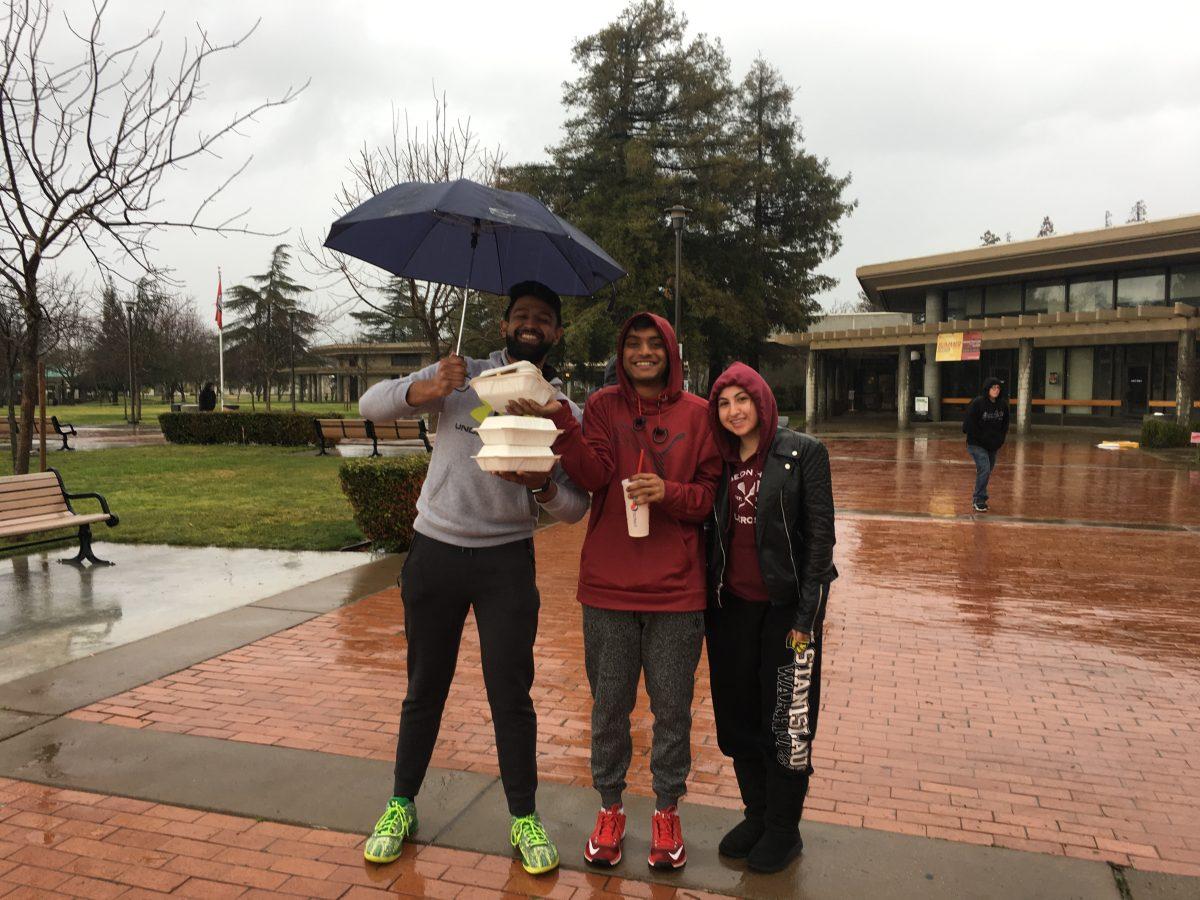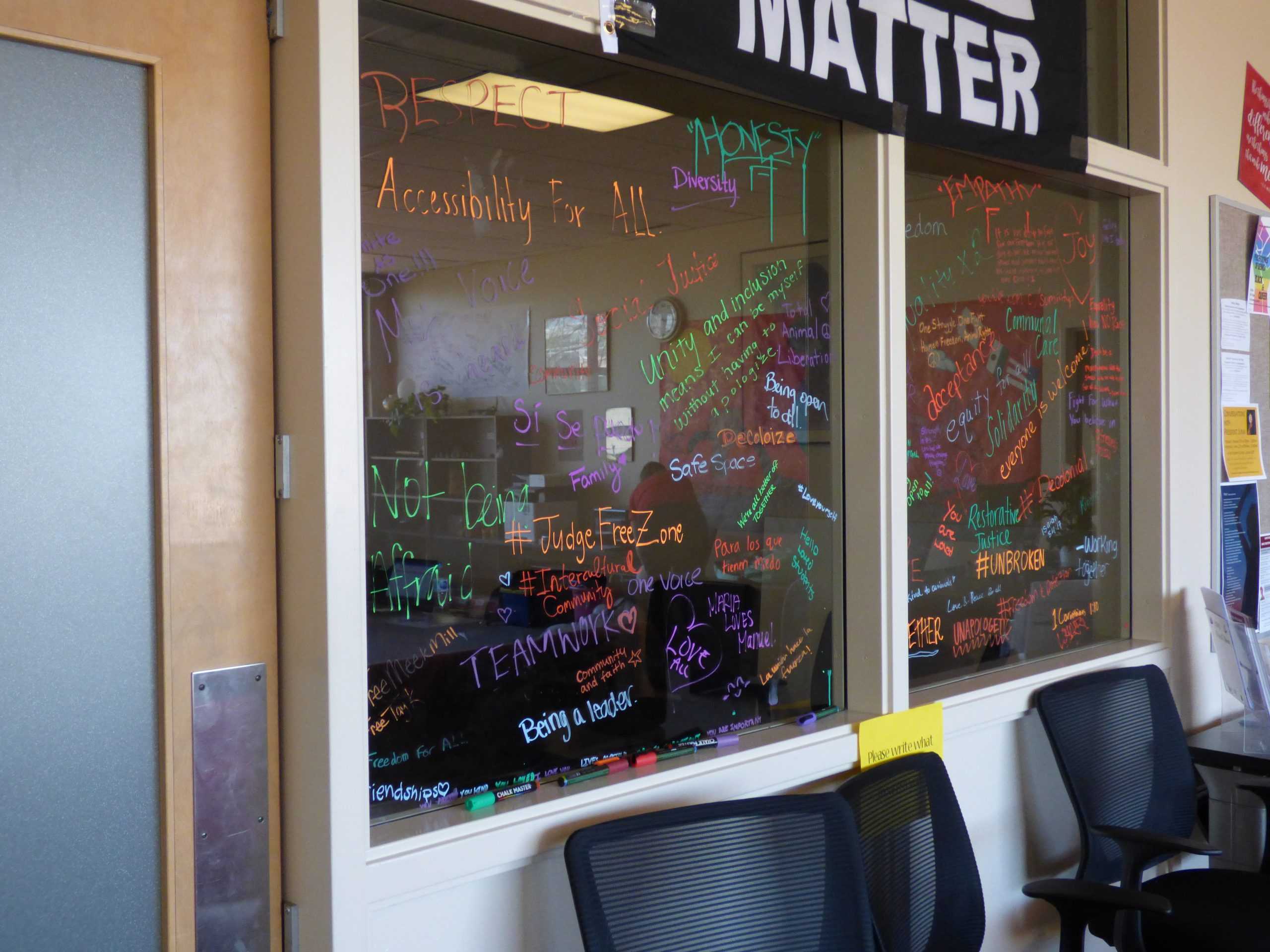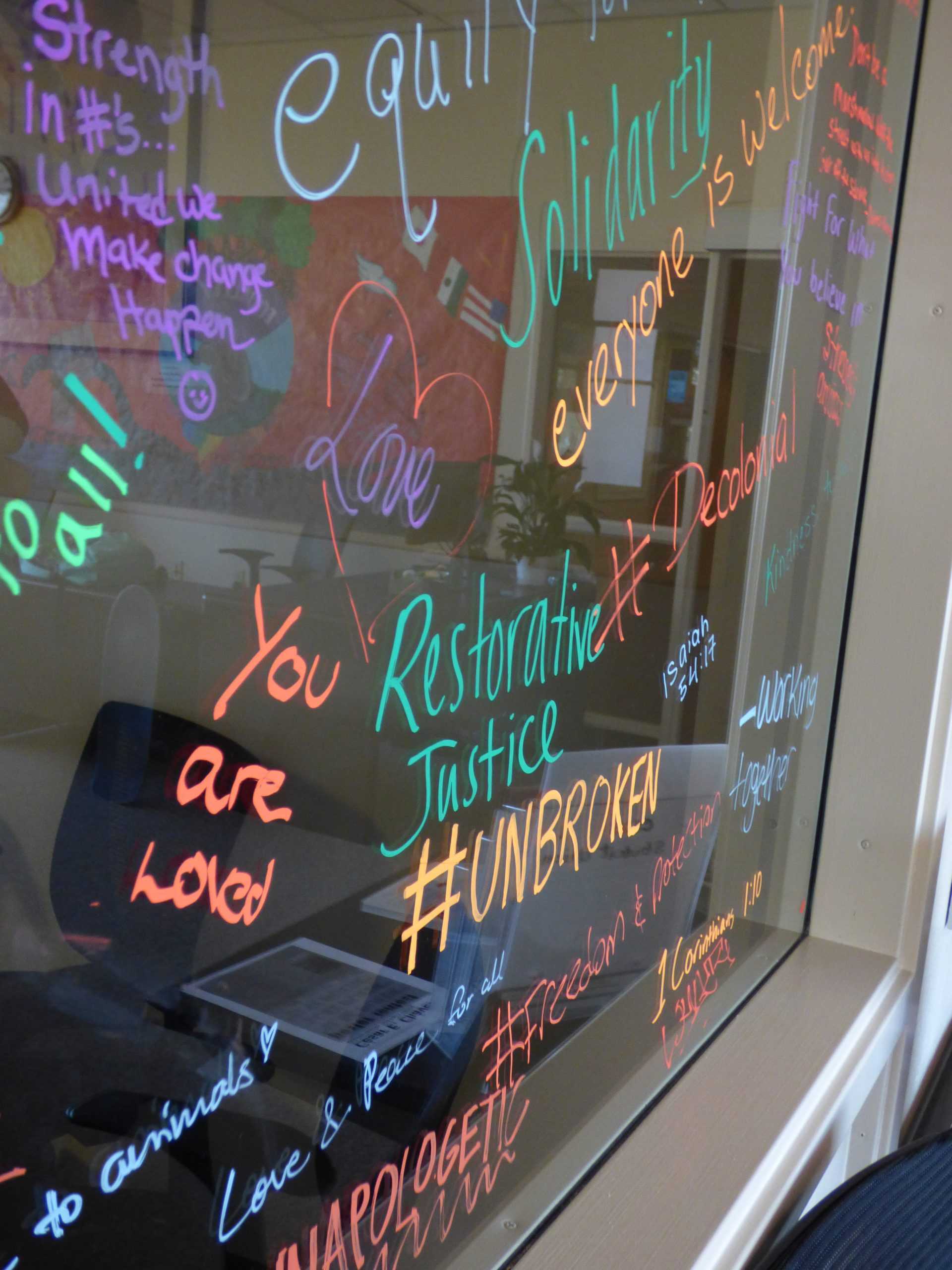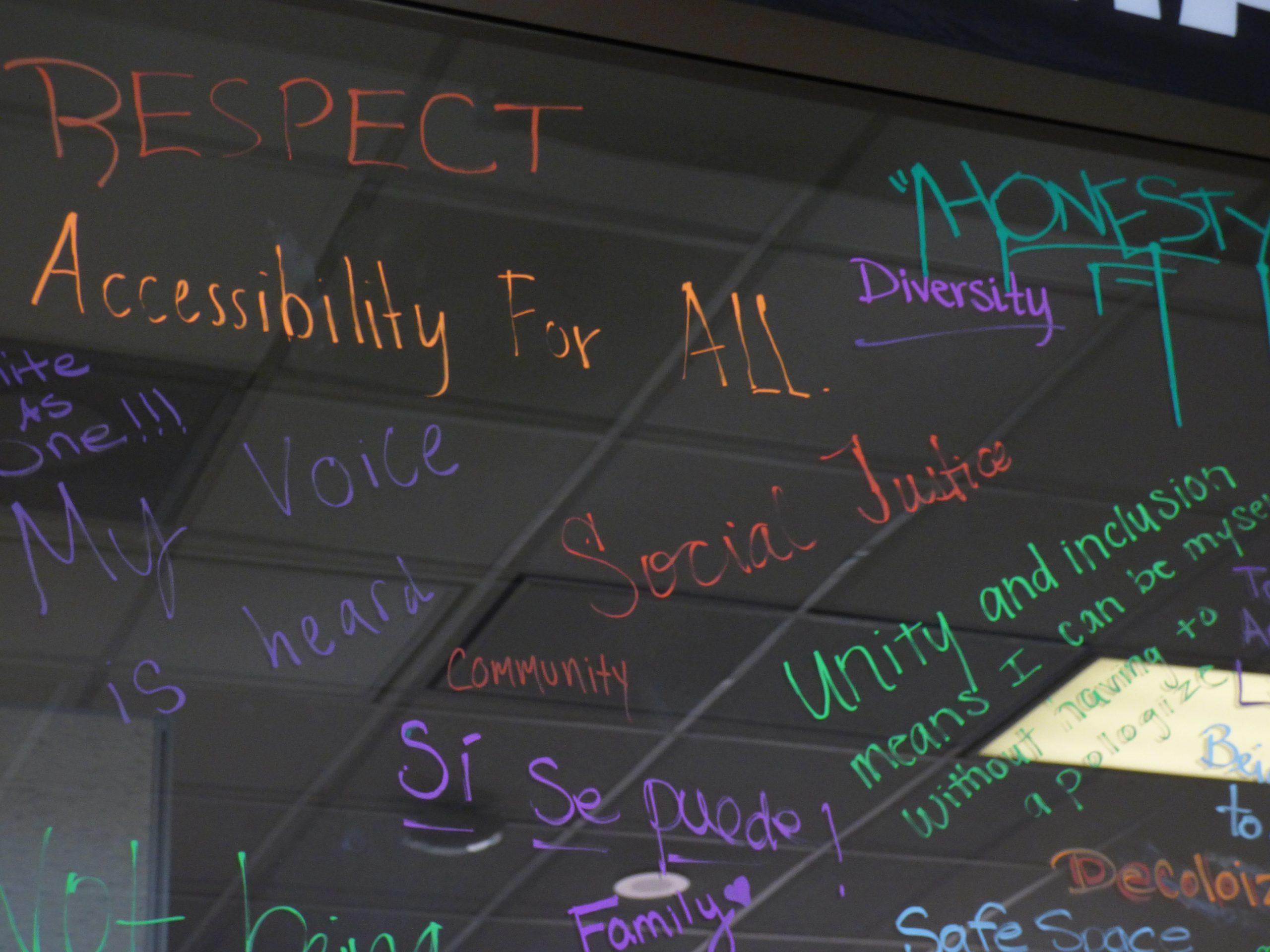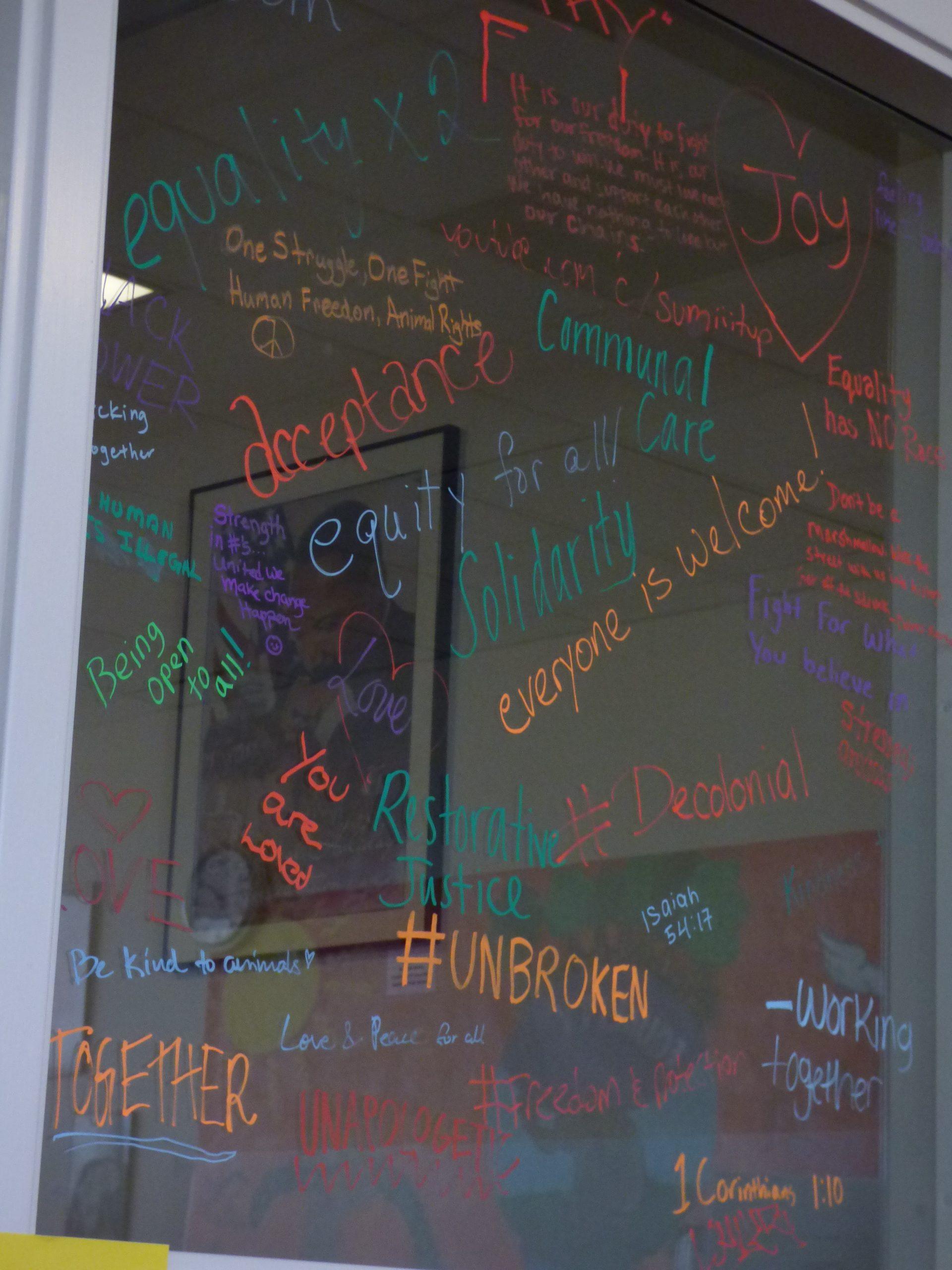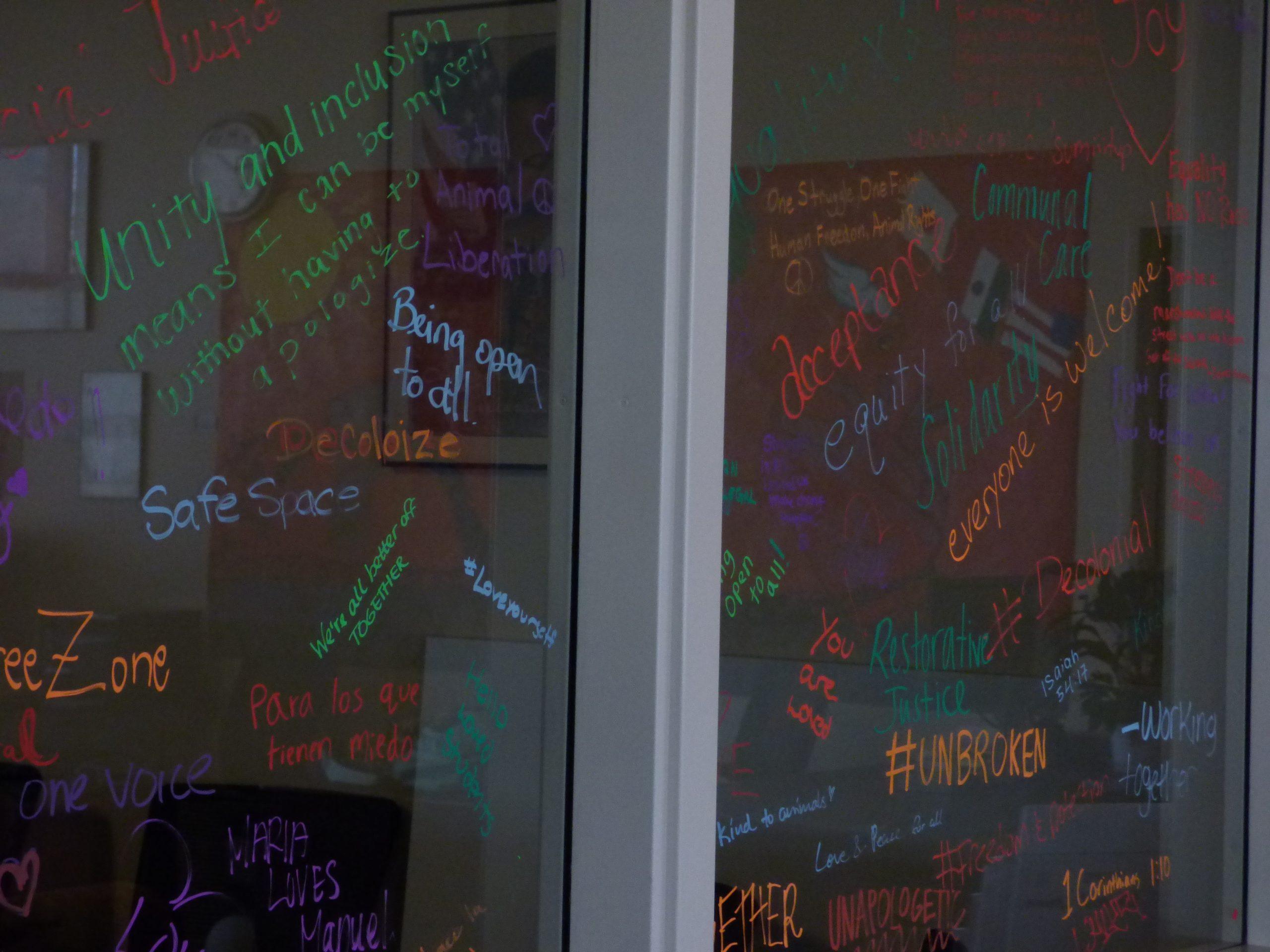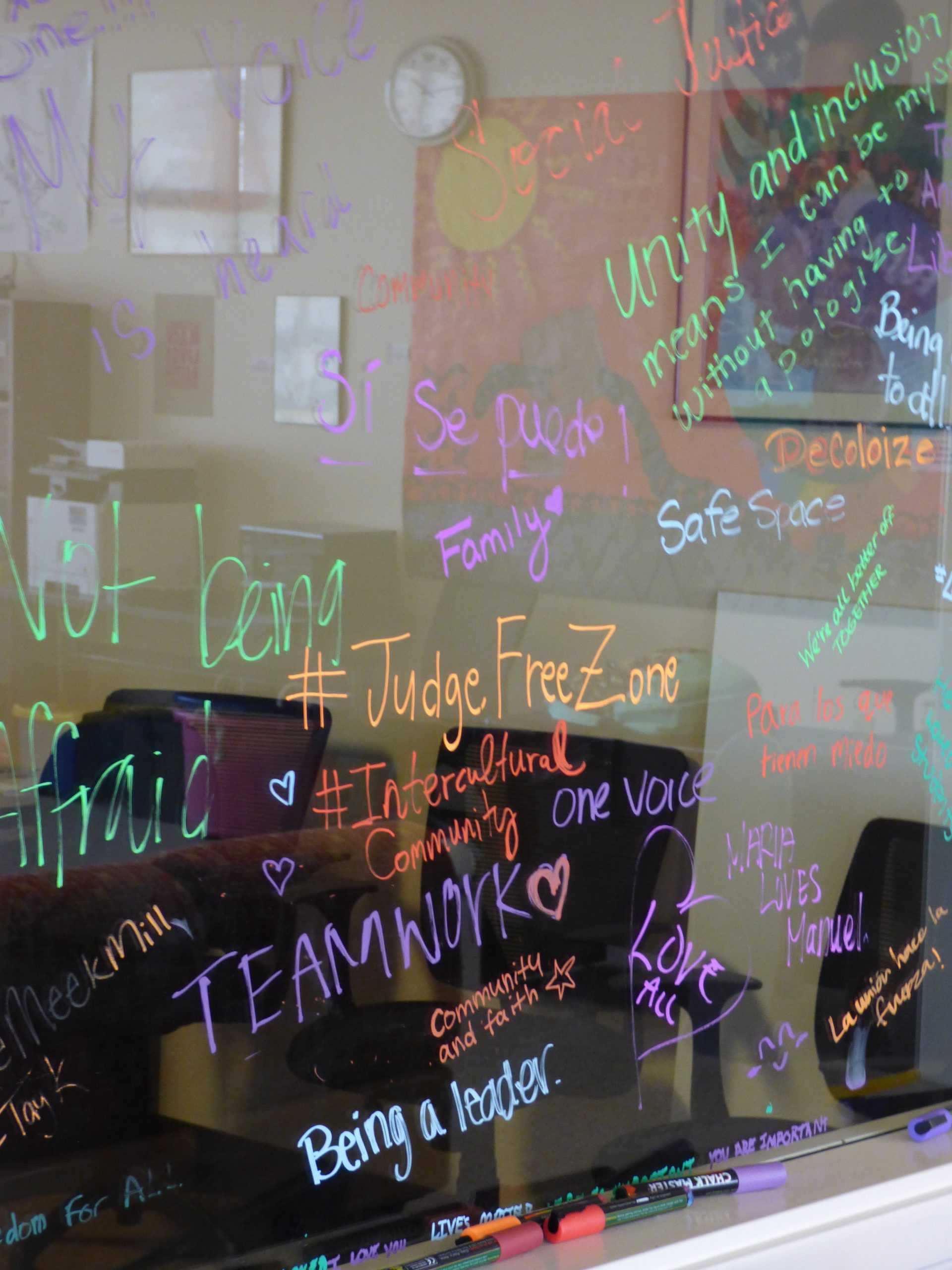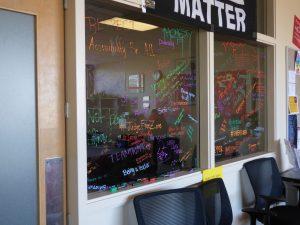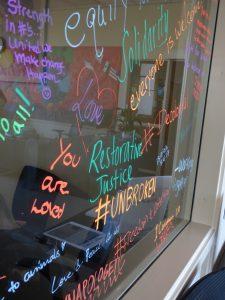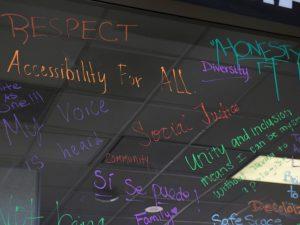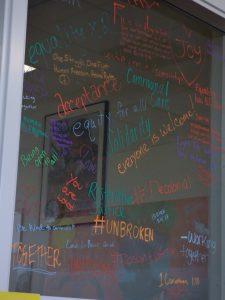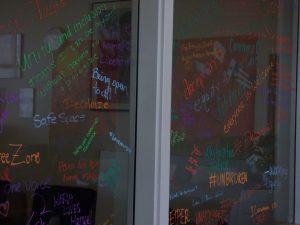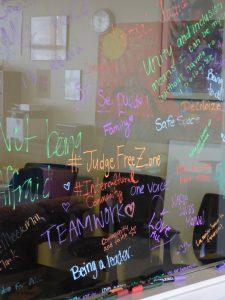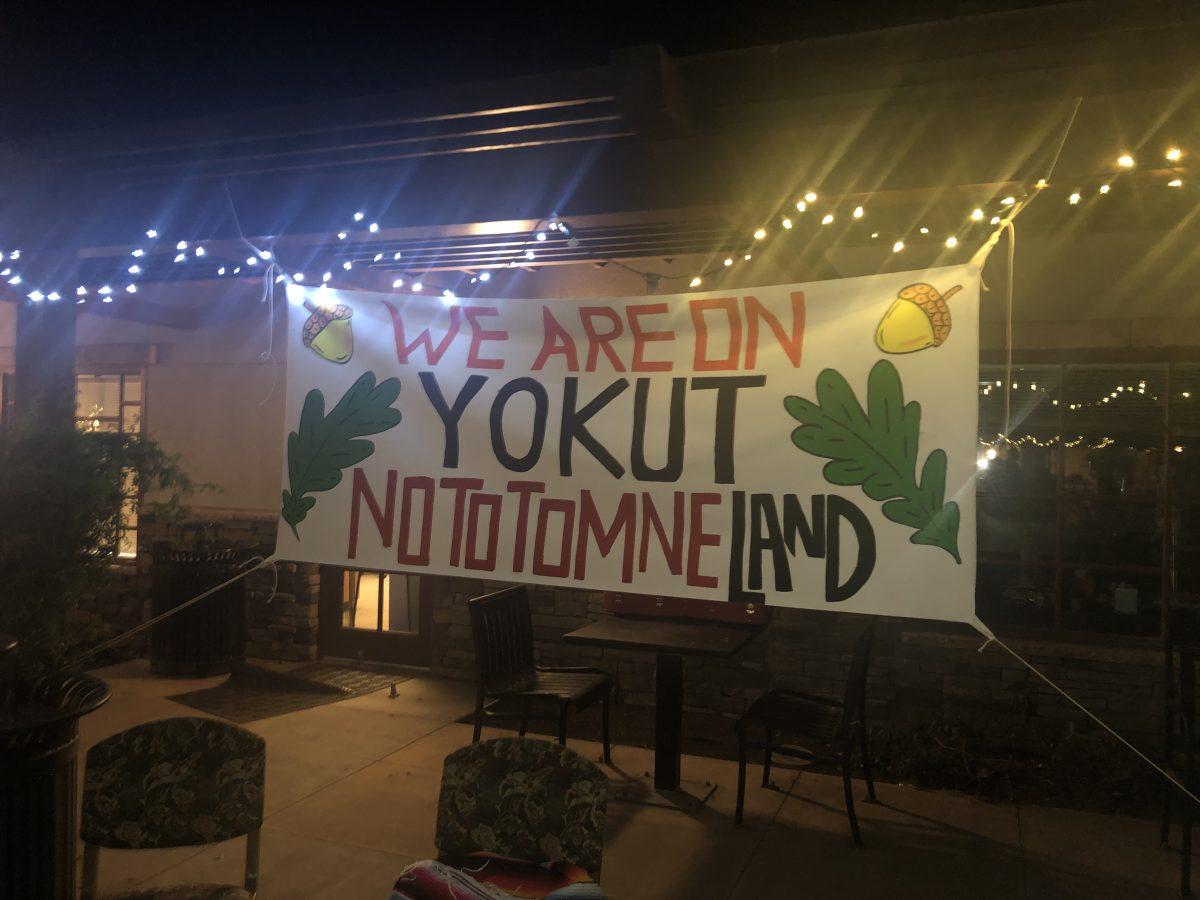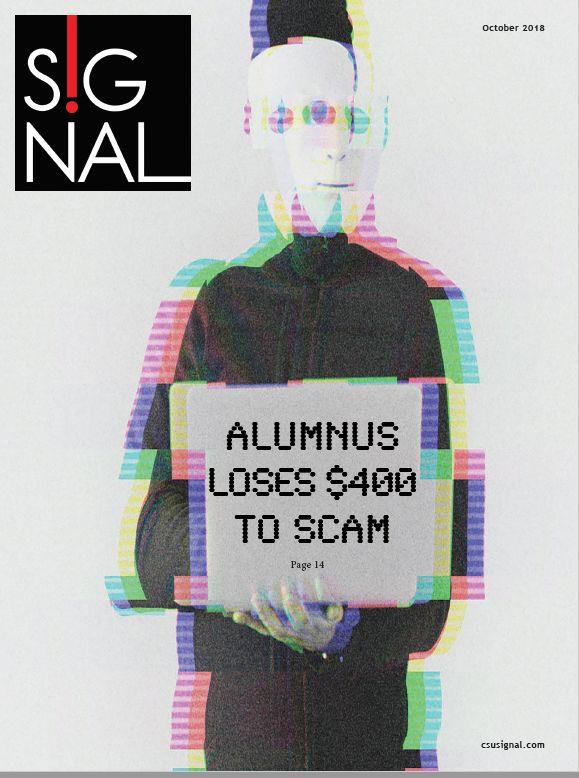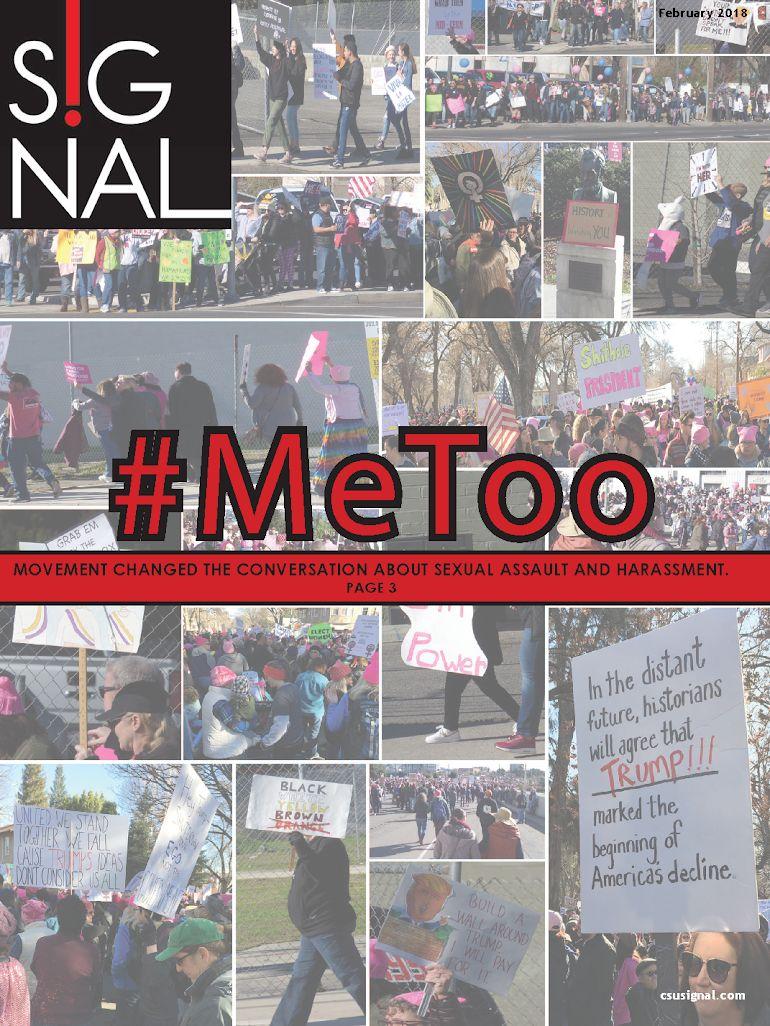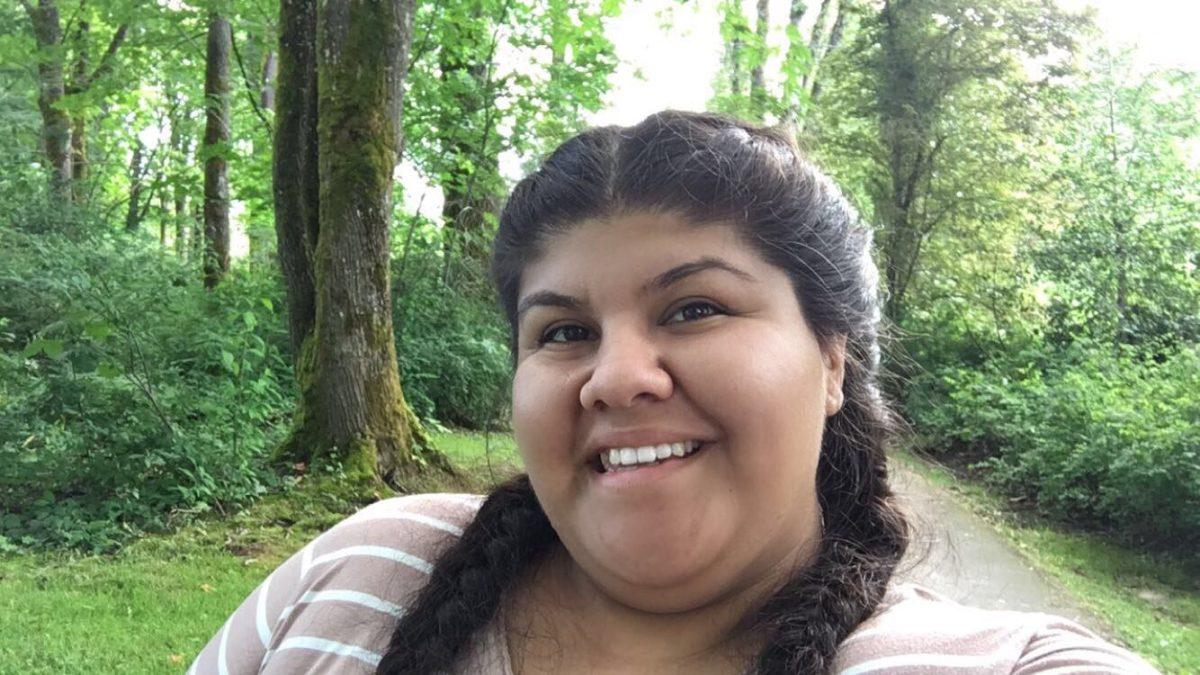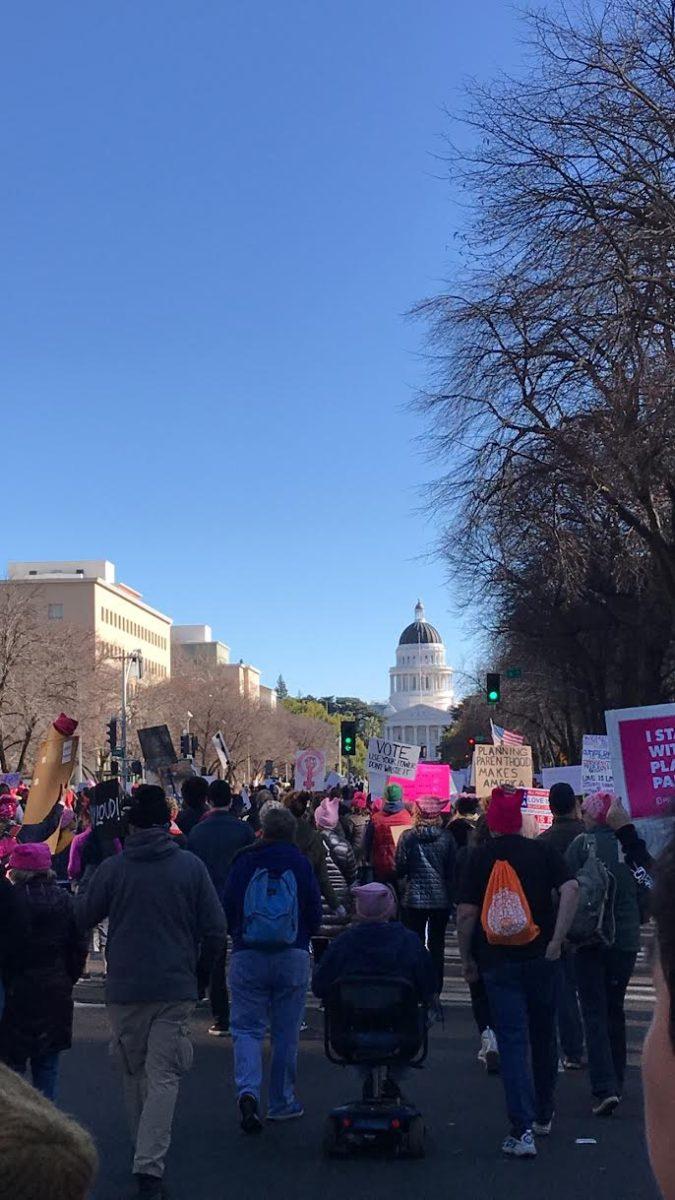There has been an increase in anxiety and tension over the past couple of years due to the current political climate. However, Stan State faculty and students are committed to promoting unity and inclusion.
Many students on campus still feel like they are unable to express themselves in the classroom, but faculty wants to reassure students that this is a safe place for them.
Faculty and students agree that unity and inclusion begins with having courageous conversations.
Happening now
According to a recent poll by UCLA Institute for Democracy, Education, and Access, there has been an increase in stress and concerns with welfare, increase in polarization and incivility, and a growing number of schools have become hostile environments for vulnerable groups.
According to Dr. Daniel Berkow (Director, Psychological Counseling Services), the concerns have been felt here at Stan State as well.
“There has been a rise in general anxiety I think because of things like school shootings and seeing stuff on the news,” Dr. Berkow said. “Everything is different, it just seems like a higher level of background anxiety.”
Dr. Richard Weikart (Professor, History), was one of the faculty members who expressed his opinion on why there may be an increase in anxiety.
“Students may feel like their religious values are being threatened. Students may feel like their political values are being threatened. Students may feel a whole host of issues that are near and dear to them are being threatened, and they may not feel affirmed in those things,” Dr. Weikart said.
Kyle Addis, (senior, Liberal Studies), agreed with Dr. Weikart’s sentiment.
“Controversial topics get brought up all the time in class. Whether it be about racism, religion, or the school education system. Sometimes you just have to choose your battles. I never want a discussion to turn into an argument with another classmate or the professor,” Addis said.
Stephanie Hubbard, Interim Director for Student Leadership and Development said this type of anxiety and guilt surrounding controversial topics is unproductive in a learning environment.
“The concept of conflict, people are really averse to it and especially around issues of diversity people start to feel guilt, which is unproductive,” Hubbard said. “People get immobilized, because they don’t know what to say or they don’t want to say the wrong thing.”
This fear of speaking up is known as the chilling effect. Dr. Shannon Stevens (Assistant Professor, Communication Studies) explained this concept further.
“Through social taboos, we are afraid to express ourselves, we are afraid to say something for fear that the people in the dominant group around us are not going to agree, and will therefore punish us, will silence us, will exclude us in some way,” said Dr. Stevens.
Tirzah Ricklick, (junior, Kinesiology), explained how she has seen the chilling effect in her classes.
“There are always people uncomfortable sharing in class for a number of reasons. Sometimes they are shy, disinterested, insecure about their opinion or what people will think of them because of it,” Ricklick said. “It can be genuinely hard to have a conversation with someone who disagrees with you and isn’t willing to hear or consider your side.”
Speak up
Despite the fear of speaking up and the anxiety surrounding controversial topics, this community needs students and staff to continue to have those courageous conversations for a variety of reasons.
Hubbard explained that these courageous conversations are especially important for underrepresented groups here on campus.
“Creating understanding and building on that is really important and it starts with conversations,” Hubbard said. “It is also important for students to know that our campus can have greater influence when we come together.”
“If everybody stays in their individual identity silos, that is the surest way to not get very far, but when we come together both the people of underrepresented identities as well as people of majority identities we are powerful,” Hubbard said.
Dr. Stevens said that diverse conversations are also an important part of the learning process.
“I think that it can do a disservice to the other students in the classroom and to the faculty who are teaching that group to not open up and at least try to explain why you believe the way you do about a certain topic,” Dr. Stevens said. “We can’t be freed by knowledge if we’re not sharing it with one another.”
Students also said how they feel about sharing in class. Yanly Gutierrez (sophomore, Sociology), explained that the more other students participate the more likely she is to participate also.
“I feel more comfortable sharing in class when other students speak up. The more often other students share in class, the more likely I am to share my opinions,” Gutierrez said.
Addis expressed a similar opinion.
“If I get to know the majority of the students in the room then I tend to open up more and participate in the discussion,” Addis said.
Value of controversy and variety
Stan State increasingly consists of a variety of groups and this can be a source of strength for us as a university in many ways.
Dr. Michael Tumolo, (Associate Professor, Communication Studies) shared his opinion on the value of controversy, and how we can learn through it.
“It’s not whether you like the broccoli, it’s about whether you understand the broccoli,” Dr. Tumolo said. “Controversy offers an opportunity to understand one’s own beliefs and the beliefs of others.”
Different opinions are fundamental to the democracy as well as to the community at Stan State.
“The whole notion of allowing varieties of opinions is enshrined in our founding documents,” Dr. Weikart said. “I see tremendous value in tolerating different kinds of viewpoints. It’s simply the loving thing to do to people that you disagree with, it has to work in all directions though and that’s the problem a lot of times.”
Variety is valuable to us as individuals as well. Part of the process of identity development is allowing a variety of people into your life Hubbard said.
“Life can’t just be about me and my people, it has to start having an integration. What do the other people in my world mean and how do we interact with one another,” Hubbard said.
Truly a safe space
The term “safe space” refers to a space for individuals to come together to communicate regarding their experiences typically found on university campuses.
While Stan State has several designated safe spaces here on campus, students and faculty can also find a safe space to have conversations in classrooms and among their classmates.
Hubbard shared her thoughts on how students might react to diverse opinions based on her previous interactions with students.
“The majority of the students here are definitely people who want to bring others in, who want to have unity and inclusion at the core of who they are,” Hubbard said
Ricklick also understands the importance of being a safe space for her classmates.
“I think that students should be respectful of their fellow students and professor. Intently listening and responding to a student when they share can go a long way,” Ricklick said.
Dr. Stevens wants her students to feel encouraged to share in their classrooms.
“No matter where you are coming from as a student, in classes where people want you to talk, and share, these are people who want their students to teach each other, to learn from each other and to grow,” Dr. Stevens said.
Looking forward at Stan State
Hubbard is looking forward to building a stronger community based on diversity in the future.
“I think we need to move the conversation from guilt and blame to being more productive and inviting everyone, especially the people of the majority to be a part of the conversation and part of the solution,” Hubbard said.
The Diversity Center, located in the Vasche Library room 201, is beginning the process of developing workshops to help students have these courageous conversations with one another.
These workshops will teach students how to take personal responsibility to educate themselves, how to uphold unity and inclusion and build relationships, and how to look at their own actions through the eyes on another.
Currently the Diversity Center is open has been sponsoring programs and working to have permanent hours. Students may find them open in the afternoon from 1PM-5PM.
Psychological Counseling is also available to students who are looking for a private space to share. Dr. Berkow said that he was glad to see more students take advantage of the services here on campus.
“We are really working hard to make counseling understandable and safe, and I think we are succeeding and I think we are helping normalize it,” Dr. Berkow said.
Categories:
Making unity a reality
0
Donate to Signal
Your donation will support the student journalists of California State University, Stanislaus. Your contribution will allow us to purchase equipment and cover our annual website hosting costs.

